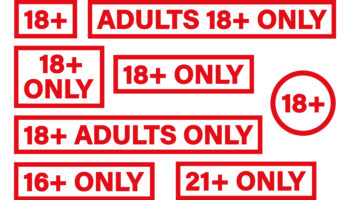As we have seen, rulings are coming down constantly protecting user-generated content on social media as free speech. This content is protected under the umbrella-like, and all-so-important to the U.S. government, First Amendment. For sex workers, who aren’t usually referenced in the mainstream press when these matters become public (no surprise there), but are surely impacted, this means that their ads, pictures, and posts on social media are protected also under the First Amendment.
Of course, we all know too well that there are people claiming that adult content isn’t “free speech.” And we see websites and content creators lambasted and even sued, with plenty of folks claiming that these producers and sex workers are protected only so far. So, any ruling, even not directly about the sex industry, of further affirmation that social media content is indeed free speech, is always a win for adult content.
But trouble is always brewing.
A reverse on TikTok
Just last week a 3rd Circuit Court of Appeals in Philadelphia ruled that a lower court should not have dismissed a case against TikTok. The court ruled that recommendations on the social media site’s ‘For You’ page, as reported here, constituted an “expressive product” that “communicates to users” that a “curated stream of videos will be interesting to them.”
Judge Patty Shwartz ruled that in exploring TikTok’s algorithmic language there are “editorial judgments about compiling the third-party speech,” and because of this, the social media giant is not protected by Section 230. Section 230, used, abused, reported on, and debated over so often lately, states that Internet platforms that host/moderate user-generated content, no matter what that content is, cannot be held liable (and for the persons hoping to make money from lawsuits) sued for that content.
Section 230 linked with and some would say rendered less potent by FOSTA slips was back into American law history, with something called Sesta or the Stop Enabling Sex Traffickers Act. Layers exist here of what the law considers harmful and libelous speech, all under the intent of protecting children. But as the net has progressed in its infiltration into global culture, free speech exacts a fee.
And as digital rights advocates Evan Greer and Lia Holland of Fight for the Future remind us of 230 it “…does not provide immunity if the platform develops or creates the content, and it does not provide immunity from the enforcement of federal criminal laws.”
The Blackout Challenge
What prompted this latest suit and reporting over TikTok was a child trying to perform a “Blackout Challenge” via a video the youngster found on the TikTok’s “For Tou,” page. Surely a tragedy, this recent horrific challenge urges kids to choke themselves until they pass out. The child who tried the challenge died.




